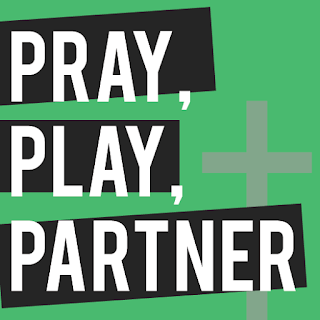By: Ian Anderson, CtK Council President I’m really proud of our congregation for the excitement and support put forth during the past month towards our plans for ministry and congregational care in 2015. The most tangible outcome is that we’ve proposed, debated and accepted a spending plan for 2015 that is ambitious, a 28% increase from 2014.
Even if you’ve been following along the whole time, here are three things you need to know about the spending plan.
But before we jump in,
I ask you to literally pray about this. Whether it upsets you some to be asked for more money or whether you are so excited that you are ready to cut a check for $5,000 each month (and if you are, please let me know!)… please pray for yourself and your role, pray for the church and what we’re doing.
1) The Idea Behind the Increases These increases are about two simple ideas that we feel strongly about.
IDEA #1: Christ the King is here by the will and the grace of God and we are called upon to be a bright spot and share the love of Christ we've received, with God, with each other and with the world.
I realize this is a big, sort of ambiguous, sentence. But think about some of the specifics: we come together to worship and we’re blessed with bright, smiling faces and beautiful music… we meet in small groups to develop our understanding of the profound, day-to-day meaning in the teachings of Christ… we try to be good neighbors and help out around town like through the Community Cafe or donations to the Food Bank. These are ALL very well and good!
BUT (perhaps you noticed that’s a big but), we’ve also been praying and listening and as a community, we are being led to continue our growth as Christians and, specifically, to hold each other as well as our neighbors and visitors up in the light of God.
We have specific ideas about this, including: strengthening our fabric of support and spiritual growth at CtK for ALL AGES, literally age 0-99+, through learning, education and activities… learning about ourselves and sharing our stories just in case we find ourselves positioned to do a little - wait for it - evangelizing… reaching out to the neighborhoods immediately around us as well as to an elder-care community,
just to be good people! But all of these things don’t happen on their own and we are well aware of the struggles in recent years to do our best with what we had. Now, we have the opportunity to invest a little more in doing a little more and we have discerned the call and response to do so. The spending plan increase will help further us in this cause.
IDEA #2: Our choices reflect our beliefs and core values.
It’s been a little lost in the discussion but the spending plan proposes an almost DOUBLING in our benevolence, back to the neighborhood of 10%, which accounts for over $16,000. It had been cut back towards 5% for a few years in order to make sure we could pay our staff and meet our obligations. But the intent was never to skimp on giving. Now we are back in a position to share our gifts with others. We believe in honoring God and being thankful for our gifts in this manner.
2) It’s Not About The Money, It’s All About The Money Do a little jig if you know what I’m talking about!
First, it is important to understand that the idea of continuing and evolving our current ministries and care hinges as much on our intent and actual participation as it does on our funding.
We all believe that our works will not buy our way into heaven. Similarly, our money won’t buy us works!
Our hearts, minds and bodies are as important in this as anything.
With that in mind, the money isn’t important in and of itself. However, as we ask people to go above and beyond in helping us coordinate our activities and develop infrastructure to assist us in reaching towards our dreams, it is right to compensate them! In other words, we need our pastors’ help and we need to pay them!
3) There is a Plan Compared to business-as-usual in the church setting, things have been moving at a breakneck speed the last few months! Wrapping our minds around all of the implications, trying to reach out to as many invested parties as possible and doing all of the groundwork necessary to present this to the congregation has been quite challenging.
But there is a plan. Right now, that plan is a neat little one page table that shows exactly what we (the congregation, the council, the co-pastors and lay leaders) need to do in each of the seasons of Epiphany, Lent, Easter and Pentecost to move our plans and ideas forward.
This plan will be discussed and finalized this Thursday by council. Here is a short version:
Congregation: Pray Now, Participate and Support as called forth!
Council: Pray, Implement, Provide Oversight and Communicate!
Co-Pastors: Pray, Develop Infrastructure, Train and Support!
Lay Leaders: Pray, Train, Facilitate and Develop Ministry!
So as long as we do all of that, we’ll be moving on up George Jefferson style!
One last word. Please understand that nobody wants you to do something that isn’t right for you, but, simultaneously, we want you to pray and
want you to do what makes sense to you. What comes forth will be the will of God as guided by the Holy Spirit. This is what we believe and we wouldn’t have it any other way.












